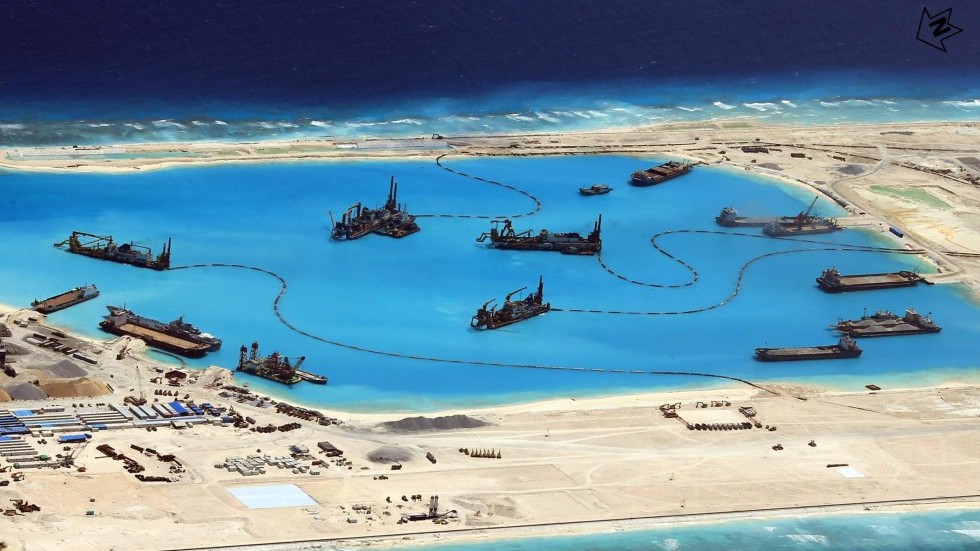
July 4:
Russian Foreign Minister Lavrov visits Armenia
Israeli PM Netanyahu begins tour of East Africa
July 5:
US-led RIMPAC 2016 exercises begin in Hawaii
UK Conservative Party holds first votes to narrow candidates for leadership
July 6:
Colombian court rules on government plan to hold a referendum to ratify FARC peace deal
July 7:
Philippines government receives South China Sea ruling (publicly released on July 12)
Indian PM Modi begins five-day tour of Africa
July 8:
Two-day NATO Leaders Summit in Warsaw begins
July 10:
Japan holds elections for upper house
ISRAELI PRIME MINISTER IN AFRICA

Israel’s Prime Minister Benjamin Netanyahu will embark on a tour of East Africa on Monday, July 4, as he seeks to repair ties and boost trade with Uganda, Kenya, Rwanda and Ethiopia.
Netanyahu will be the first Israeli leader to visit the region in more than 30 years. Diplomatic ties with most East African countries were severed after the 1973 Arab-Israeli war and further strained by Israel’s close relationship with South Africa’s apartheid regime.
Netanyahu is expected to announce a $13 million program to increase trade and investment with the region and will be accompanied by business leaders representing more than 50 Israeli companies.
The prime minister is also expected to attend a counter-terrorism summit in Uganda, where he’s expected to offer increased cooperation with regional countries to combat militant groups such as Al Shabaab, which has increased its activity in recent months.
BRITISH CONSERVATIVE PARTY NARROWS LEADERSHIP CANDIDATES

On Tuesday, July 5, British Conservative Party MPs will begin the process of narrowing down the number of leadership candidates from five to two by the ballot box . The lowest-ranked candidate will be eliminated on Tuesday, with a second vote set for July 7 and the third on July 12. Once only two candidates remain a wider party ballot will be held, giving the approximately 150,000 Conservative Party members the opportunity to choose their next leader. This vote is expected to be held on September 9.
Home Secretary Theresa May and Justice Secretary Michael Gove are believed to be currently leading the race.
May, a former consultant for the Bank of England, is widely seen as the frontrunner for the job. Although she quietly lent her support to the “Remain” campaign, Ms May says she will respect the people’s will and help usher the UK out of the EU if she becomes prime minister. In this sense, May has positioned herself as a unifying figure in a divided country. On the other hand, May’s failure to hit lower immigration targets set out by the Cameron government in her role as Home Secretary may work against her.
Michael Gove supported the “Leave” camp alongside Boris Johnson, who he was expected to support in the leadership tussle. However, in a surprise announcement last Thursday, Gove said he no longer believed Mr Johnson was up to the job. Gove has positioned himself as socially progressive but has vowed to reduce immigration numbers and end the free movement of EU citizens in the UK.
SOUTH CHINA SEA DECISION HANDED DOWN

On Thursday, July 7, the Permanent Court of Arbitration in The Hague will advise the Philippines of the outcome of a case it brought against China’s expansive nine-dash line claim in the South China Sea. The ruling is expected to be made public on July 12.
In the past week, the official Chinese press has reported that Beijing is willing to start negotiations with the Philippines on maritime claims in the disputed region if Manila ignores the arbitration ruling. Despite a newly inaugurated president who has previously expressed willingness to deal with Beijing on a bilateral basis, the Philippines is unlikely to take the bait.
Throughout the three-year case, China has consistently stated it does not recognise the jurisdiction of the court and will not abide by the ruling.
On Sunday, China’s Maritime Safety Administration announced plans to hold naval exercises near the disputed Paracel Islands from July 5 to 11, concluding a day before the arbitral decision is publicly announced.
While Beijing has insisted it will not be deterred by the ruling, in the past months, Beijing has hinted that it is considering declaring an Air Defence Identification Zone (ADIZ) over the South China Sea. Such a move would be reminiscent of a similar measure taken in November 2014 in the East China Sea. If the Permanent Court of Arbitration rules against China, Beijing may consider the declaration of an ADIZ over the disputed waters in the coming months an apt response.
WARSAW NATO SUMMIT

Leaders of NATO states will meet in Warsaw on Friday, July 8, for the group’s two-day biennial summit. The summit is expected to focus heavily on strengthening the alliance’s presence in eastern Europe to deter Russian activities. Recently, NATO members have expressed particular concern about the reported movement and increase of Russian military assets in the Baltic enclave of Kaliningrad.
The summit is expected to culminate in the announcement of a range of measures that will increase NATO’s footprint in eastern Europe. It is expected that NATO will announce the deployment of four 1000-person battle groups in Estonia, Latvia, Lithuania and Poland while increasing the prepositioning of heavy weaponry in these areas. An announcement of the tripling in size of the NATO Response Force – a high readiness special forces unit capable of quick deployment – to 40,000 is also anticipated.
On the sidelines, the Presidents of the European Commission, European Council President and the US are expected to discuss the future of US-EU relations, particularly in relation to the fallout of Britain’s decision to leave the EU.
Simon is the founder of Foreign Brief who served as managing director from 2015 to 2021. A lawyer by training, Simon has worked as an analyst and adviser in the private sector and government. Simon’s desire to help clients understand global developments in a contextualised way underpinned the establishment of Foreign Brief. This aspiration remains the organisation’s driving principle.

